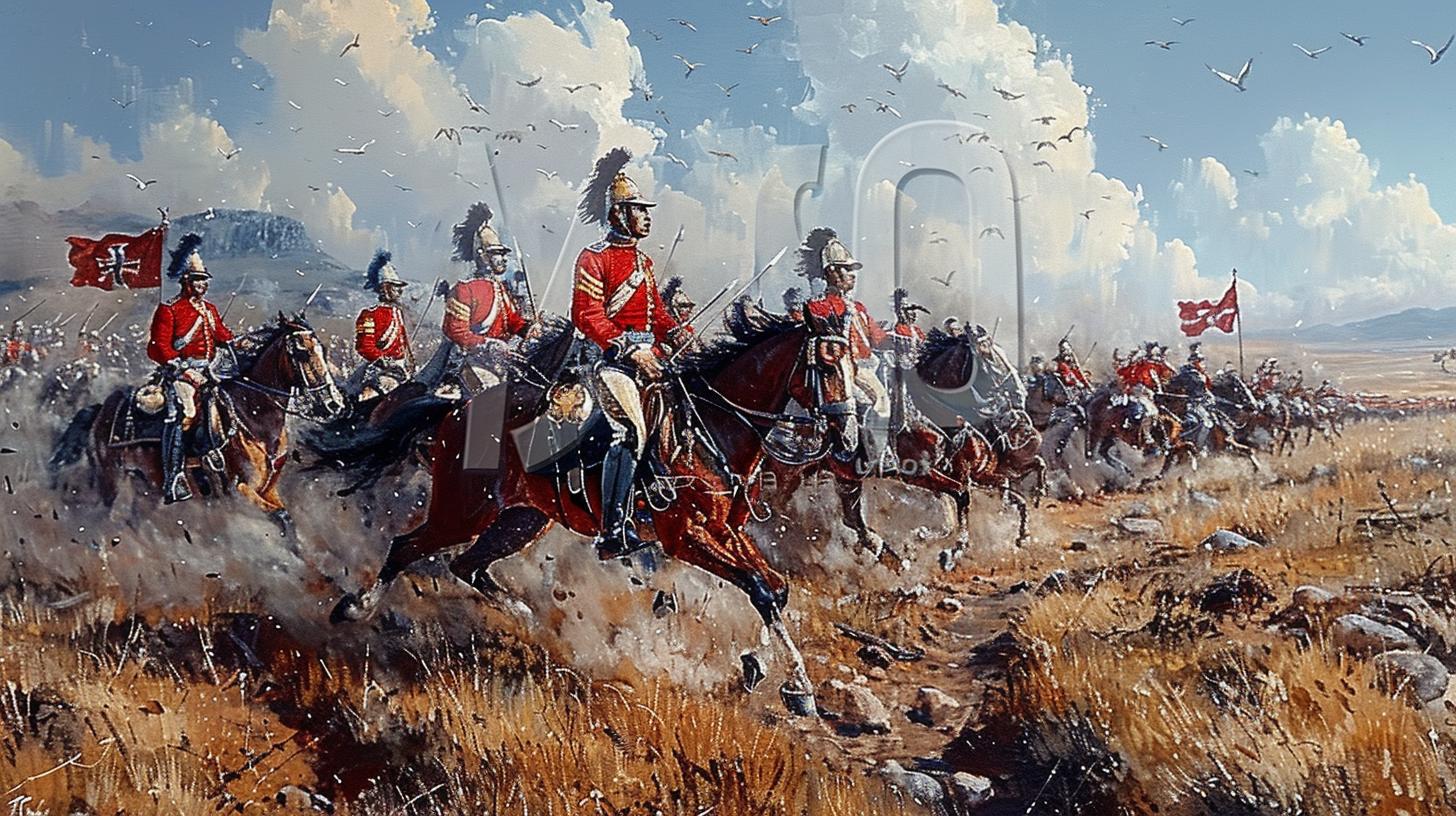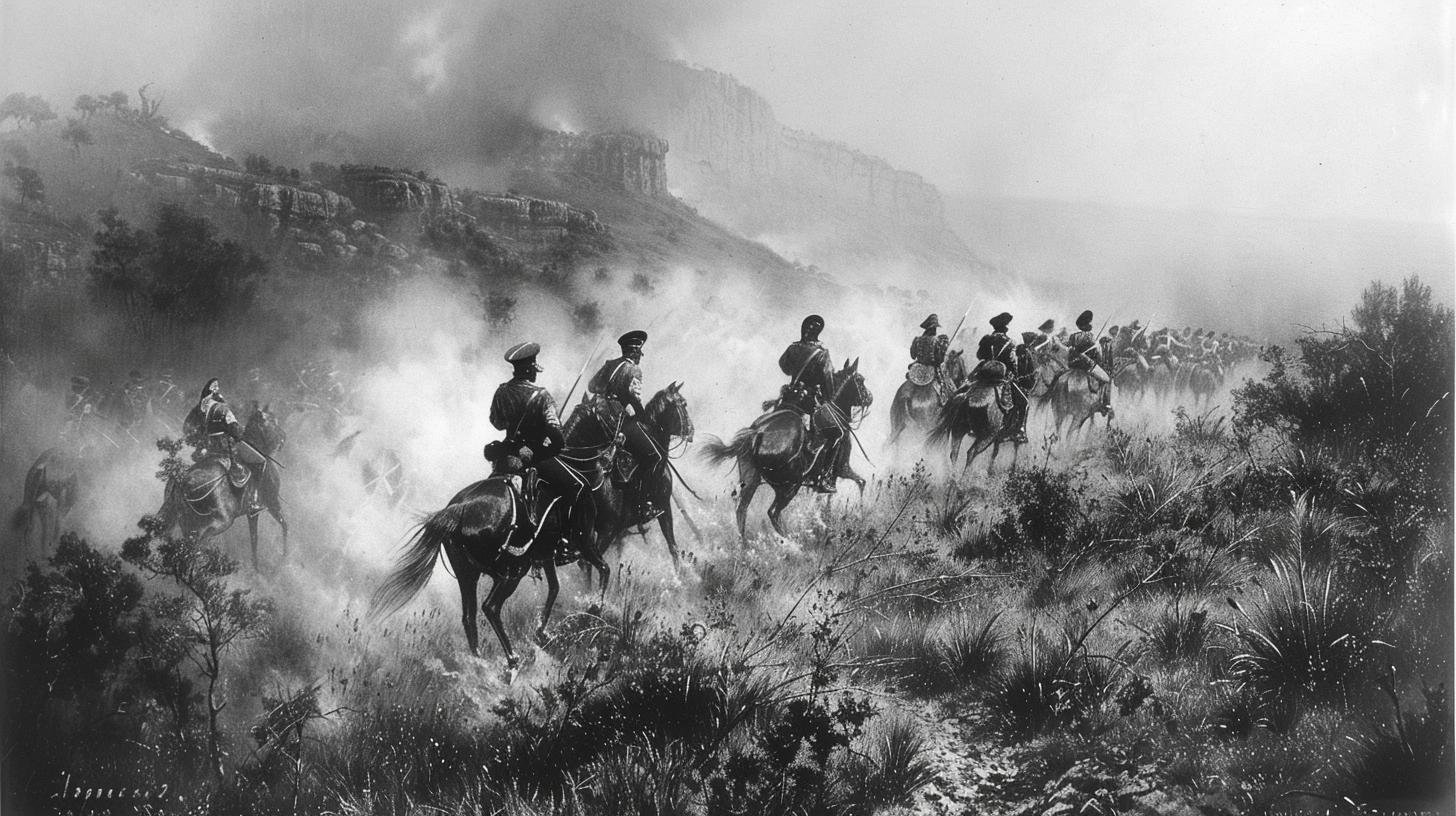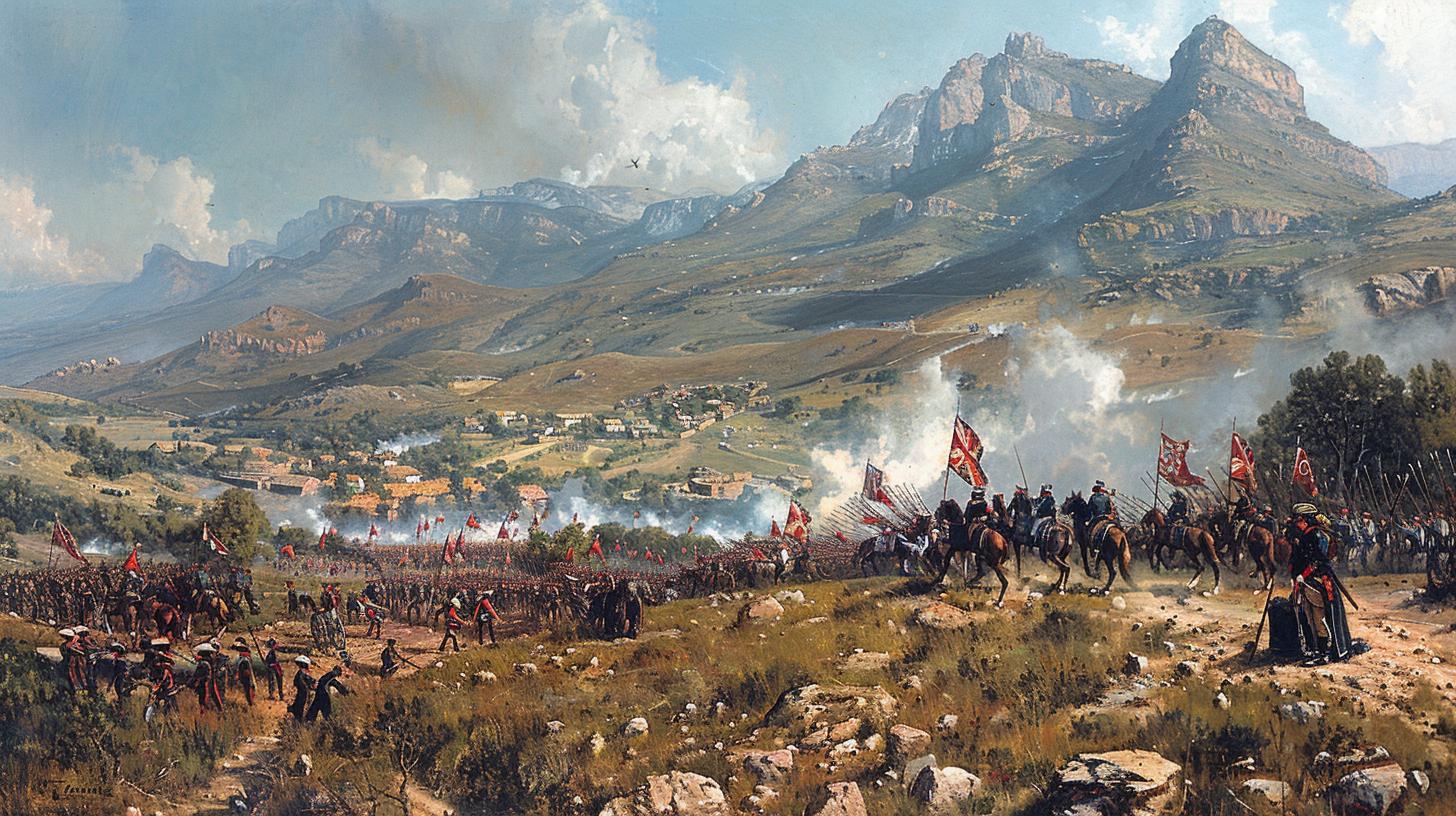Who Won The Zulu Wars In South Africa: The British Victory in 1879

The Anglo-Zulu War of 1879 resulted in a significant conflict between the British Empire and the Zulu Kingdom in South Africa. The pivotal Battle of Isandlwana saw a surprising British defeat, while the subsequent Battle of Rorke’s Drift showcased remarkable British defense.
Ultimately, the British emerged victorious, leading to the capture of Zulu King Cetshwayo and the incorporation of Zululand into the British Empire. This historical event continues to shape popular culture and historical narratives.
The Origins of the Anglo-Zulu War
The Anglo-Zulu War of 1879 had its roots in the complex dynamics between the British Empire and the Zulu Kingdom in South Africa. Understanding the origins of this conflict sheds light on the fierce battles and dramatic outcomes that would follow.
British Interests in South Africa
- The British Empire held strategic interests in South Africa.
- This included utilizing Zulu labor for diamond mining.
- British ambitions also aimed at creating a South African federation.
Cetshwayo’s Resistance to British Control
King Cetshwayo’s defiance of British authority was a pivotal factor in the outbreak of war.
- The Zulu King maintained a disciplined army.
- Cetshwayo refused to succumb to British demands.
The Battle of Isandlwana
The Battle of Isandlwana would become a significant event in the Anglo-Zulu War.
British Defeat at Isandlwana
- The British forces suffered a humiliating defeat at Isandlwana.
- The Zulus demonstrated formidable military prowess.
Significance of the Battle
- Isandlwana highlighted the vulnerability of the British forces.
- It signaled the fierce resistance put up by the Zulu warriors.
The Battle of Isandlwana
The Battle of Isandlwana was a crucial engagement in the Anglo-Zulu War, where British forces suffered a significant defeat against the Zulu warriors. Despite their numerical advantage, the British troops were outmaneuvered and overwhelmed.
British Defeat at Isandlwana
The British forces, led by Lord Chelmsford, faced unexpected resistance from the Zulu army at Isandlwana. Despite superior weaponry, the British were unable to withstand the fierce and coordinated attacks of the Zulu warriors, resulting in a devastating loss.
Significance of the Battle
The Battle of Isandlwana was a turning point in the conflict, highlighting the military prowess and tactics of the Zulu warriors. The British defeat shocked the Empire and led to a reassessment of their strategies and engagements in the region.
The Battle of Rorke’s Drift
British Defense at Rorke’s Drift
Following the devastating loss at Isandlwana, the British forces displayed remarkable courage and resilience at the Battle of Rorke’s Drift. With just 139 soldiers, they successfully defended the mission station against approximately 4,000 Zulu warriors for over 10 hours.
Strategies and Outcomes
The British soldiers at Rorke’s Drift implemented strategic positioning and utilized the terrain to their advantage. They skillfully repelled wave after wave of Zulu attacks, demonstrating exceptional teamwork and determination. Despite being vastly outnumbered, their defensive strategies ultimately led to a significant victory.
Other Key Battles and Engagements
Throughout the Anglo-Zulu War, several other key battles and engagements took place, each contributing to the overall outcome of the conflict.
Battle of Intombe
The Battle of Intombe was a significant engagement between British and Zulu forces, with intense fighting and strategic maneuvers on both sides.
Battle of Kambula
In the Battle of Kambula, British forces faced a large Zulu army, showcasing their military prowess and strategic planning in the face of a formidable enemy.
Battle of Gingindlovu
The Battle of Gingindlovu was a crucial confrontation that tested the resolve and tactics of both British and Zulu warriors, ultimately highlighting the brutality and complexity of war.
The Capture of Cetshwayo
The capture of Zulu King Cetshwayo marked a significant turning point in the Anglo-Zulu War.
After evading British forces for months, he was finally apprehended in August 1879. This event triggered a series of consequences that would reshape the fate of Zululand and its people.
Consequences of Cetshwayo’s Capture
- The capture of Cetshwayo led to the disintegration of Zulu resistance against British rule.
- With their leader in captivity, the Zulu military forces were significantly weakened.
- Cetshwayo’s incarceration symbolized the end of Zulu autonomy and marked the beginning of British dominion over the region.
The Incorporation of Zululand into the British Empire
After the capture of King Cetshwayo in 1879, Zululand was incorporated into the British Empire, marking the end of Zulu autonomy.
This significant political shift had far-reaching consequences, reshaping the power dynamics in the region.
End of Zulu Autonomy
The incorporation of Zululand into the British Empire resulted in the dissolution of Zulu autonomy, as British colonial rule replaced traditional Zulu governance structures. The imposition of British laws and policies fundamentally altered the socio-political landscape of the region.
Impact on Zulu Culture
Under British rule, traditional Zulu customs and traditions faced suppression, as the colonial authorities sought to establish their authority and control. Many aspects of Zulu culture, including language, education, and land ownership, underwent significant changes with the incorporation into the British Empire.
Political Reorganization
The incorporation of Zululand into the British Empire necessitated the reorganization of local governance mechanisms. British administrators were appointed to oversee the region, leading to a shift in power dynamics and the marginalization of traditional leaders.
Economic Transformation
The incorporation of Zululand into the British Empire brought about economic changes, as British commercial interests gained prominence in the region. The exploitation of resources and labor under colonial rule had profound effects on the local economy and livelihoods.
Portrayal of the War in Popular Culture
The Anglo-Zulu War of 1879 has left a lasting impact on popular culture, with various portrayals in films, literature, and other media capturing the essence of this historical conflict. The clash between the British Empire and the Zulu Kingdom has been depicted in numerous works, highlighting key events and personalities that shaped the outcome of the war.
Depictions in Films
- Several films have brought the Anglo-Zulu War to the forefront, offering different perspectives on the battles and individuals involved. Notable examples include ‘Zulu’ (1964) and ‘Zulu Dawn’ (1979), which garnered attention for their portrayal of the events surrounding the war.
- These cinematic representations have helped popularize the story of the Anglo-Zulu War, capturing the intensity of the conflicts and the resilience of those involved on both sides.
The visual medium has allowed audiences to immerse themselves in the historical narrative, experiencing the triumphs and tragedies firsthand.
Literary Works
- Authors have also delved into the Anglo-Zulu War, producing novels, poems, and other literary works that explore the themes and complexities of the conflict. Through vivid storytelling and character development, these works offer insights into the motivations and struggles of individuals caught in the midst of war.
- By weaving together historical facts and imaginative storytelling, these literary creations have helped preserve the memory of the Anglo-Zulu War, ensuring that its impact continues to resonate with audiences across generations.
Through literature, the war’s significance is kept alive, inviting readers to reflect on the human experience within a tumultuous historical period.
Artistic Interpretations
- Artistic representations of the Anglo-Zulu War have provided a visual lens through which to examine the conflict and its aftermath. Paintings, sculptures, and other forms of art have captured the emotions, landscapes, and key moments of the war, offering viewers a unique perspective on this pivotal chapter in history.
- Through artistic expressions, the nuances and complexities of the Anglo-Zulu War are brought to life, inviting audiences to engage with the themes of power, resistance, and cultural identity that defined the conflict.
These interpretations serve as a reminder of the enduring legacy of the war and its impact on both societies involved.
.





















